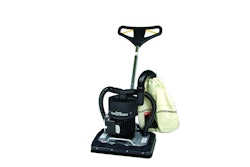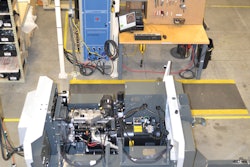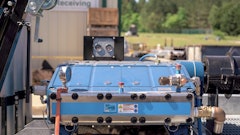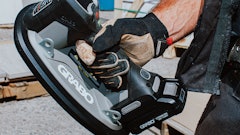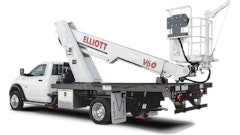It's always fascinating to me to tour and consult with rental businesses. I have been to well over 1,000 rental companies in North America and every now and then I get the rare treat to venture to far-away places. This summer I had the great pleasure to visit several “machine and tool hire” stores in Ireland.
I had never been to Ireland before and I was curious to see what the stores looked like, how they were different, what was working for them and how they were doing financially. The following are brief examples of some of my findings.
Just like in North America, I found that each “hire shop” was different from the others. There didn’t appear to be much cooperation between hire businesses. (But none of them said anything derogatory about any of their competitors.) The hire businesses I visited were in highly competitive market environments. When I asked one of the hire shop owners how frequently he raised his rates he said that because of competition, he hadn’t raised his rates in over 12 years. He also said the prices on some items were lowered to below where they were 12 years ago. All of the companies I visited had a customer service pace that was very fast and highly focused to be certain that customers received what they wanted quickly. Capturing the walk-in and phone-in customer business was an obvious a priority. It was apparent they were keenly aware their customers had other options of where to hire their machinery and tool needs.
Two of the hire shops I visited were diversifying into more hardware-store type retail products – and both owners felt this initiative was working for them. One, for example, had added plumbing supply retail items to his inventory and to the showroom display area. One of the Irish (mostly contractor-oriented) hire companies was promoting a new rental item that is designed to (among other benefits) “burn fat, tone and condition muscles” through the use of this vibration exercise machine. You’d think that an hour a day using a rented electric jack hammer, rotary hammer, jumping jack tamper or gas cut-off saw would yield similar results.
I smiled when one of the owners said he felt they had a relatively unique situation: his business had been in that location for many years and at least several times each week he has had customers tell him they've driven by his shop for years and didn’t know his business was there. Over the years, I certainly have heard the same thing many times from rental business owners. It's comforting to know that even rental companies thousands of miles away are experiencing some of the same challenges and opportunities. The little similarities help give us all a feeling of brotherhood.
Points of difference
Even though damage waiver was offered with the rental car I rented, damage waiver was not in use at any of the hire companies I visited. In fact, when I described damage waiver and what it typically covered, I discovered that they hadn’t heard of it. Just as we in North America haven’t kept an eye on what is happening in the European hire scene, the Irish hire companies I spoke to haven’t been tracking what we are doing.
Based on what these hire shop owners told me and what I saw, I believe the terrible recession that hammered North American rental companies might have been even more devastating to the Irish economy and to their hire businesses. But, the good news is that they all were cautiously optimistic not only about their near-term prospects but also their long-term future. I could tell (and some told me) that they had deep battle scars from the length and severity of the recession. One owner reminisced briefly about the good old days prior to 2007 when the economy and customers' spending habits were so positive. But I could see him abruptly snap back to the reality of the last five or six years of near financial famine.
Although they were cordial to me, the owners and other key personnel I visited with had a serious and urgent determination to have their businesses succeed. They almost seemed to have that “take no prisoners” urgency. I sensed they felt the tide of the war to succeed has finally swung a bit in their favor and were looking forward to taking advantage of the opportunity, but were not going to let their guard down.
And isn’t there a lesson in this for all of us.
![Photo Of Dick Detmer 60999537d4064[1] Headshot](https://img.forconstructionpros.com/files/base/acbm/fcp/image/2024/03/Photo_of_Dick_Detmer.60999537d4064_1_.65e72fd913082.png?auto=format%2Ccompress&crop=faces&fit=crop&h=48&q=70&rect=0%2C420%2C2336%2C2336&w=48)



